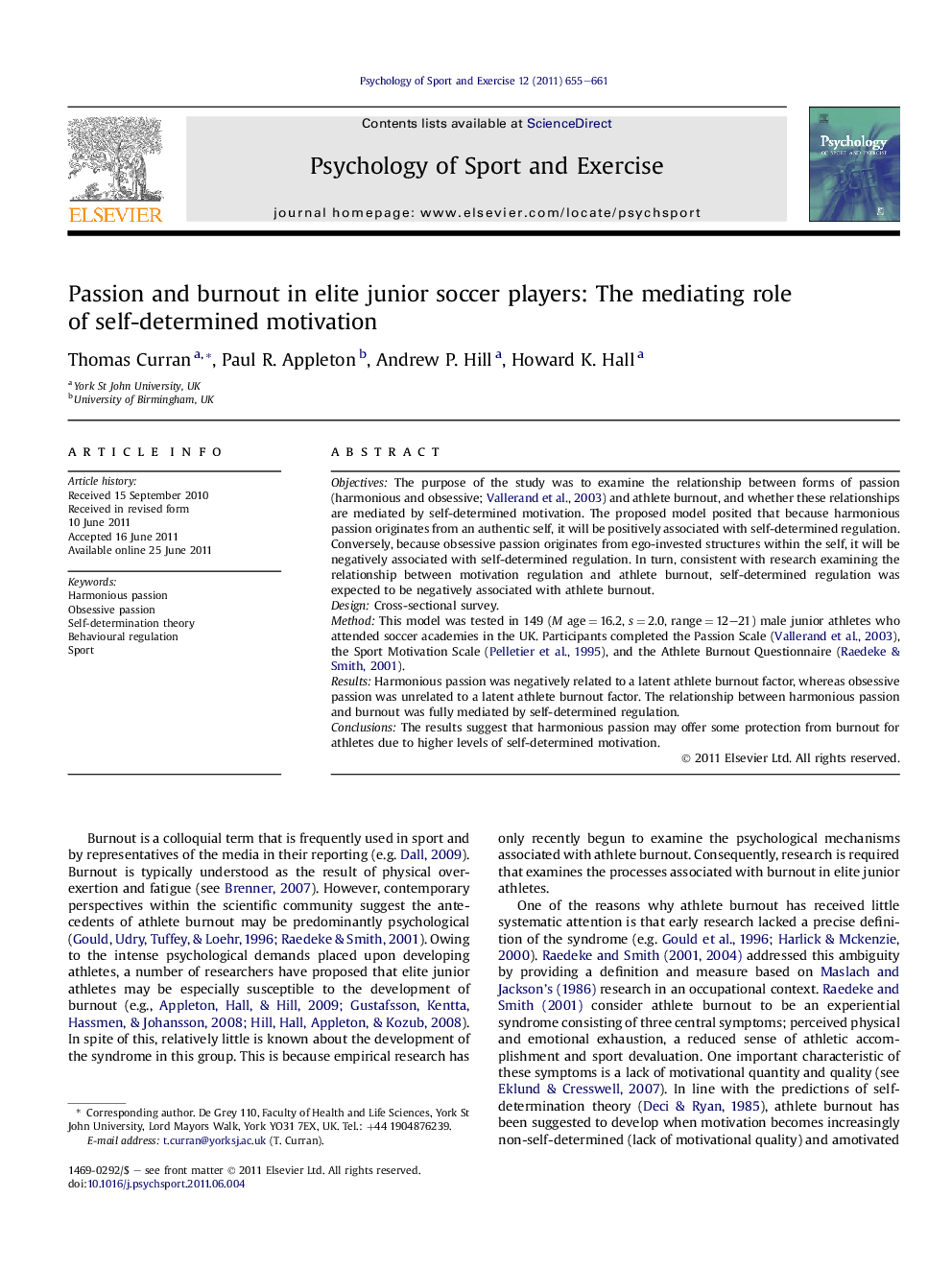| Article ID | Journal | Published Year | Pages | File Type |
|---|---|---|---|---|
| 894444 | Psychology of Sport and Exercise | 2011 | 7 Pages |
ObjectivesThe purpose of the study was to examine the relationship between forms of passion (harmonious and obsessive; Vallerand et al., 2003) and athlete burnout, and whether these relationships are mediated by self-determined motivation. The proposed model posited that because harmonious passion originates from an authentic self, it will be positively associated with self-determined regulation. Conversely, because obsessive passion originates from ego-invested structures within the self, it will be negatively associated with self-determined regulation. In turn, consistent with research examining the relationship between motivation regulation and athlete burnout, self-determined regulation was expected to be negatively associated with athlete burnout.DesignCross-sectional survey.MethodThis model was tested in 149 (M age = 16.2, s = 2.0, range = 12–21) male junior athletes who attended soccer academies in the UK. Participants completed the Passion Scale (Vallerand et al., 2003), the Sport Motivation Scale (Pelletier et al., 1995), and the Athlete Burnout Questionnaire (Raedeke & Smith, 2001).ResultsHarmonious passion was negatively related to a latent athlete burnout factor, whereas obsessive passion was unrelated to a latent athlete burnout factor. The relationship between harmonious passion and burnout was fully mediated by self-determined regulation.ConclusionsThe results suggest that harmonious passion may offer some protection from burnout for athletes due to higher levels of self-determined motivation.
► Harmonious passion inversely predicted athlete burnout. ► Obsessive passion was unrelated to athlete burnout. ► Self-determined motivation mediated the relationship between harmonious passion and burnout.
